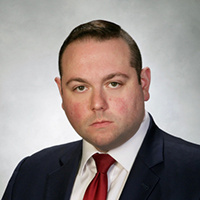Avondale White Collar Crime Lawyer, Pennsylvania
Sponsored Law Firm
-
 x
x

Click For More Info:
-
James E. Crawford, Jr. & Associates, LLC
999 Corporate Blvd. Suite 100 Linthicum, MD 21090» view mapCriminal Defense, Divorce & Family Law Move Forward With Confidence
Our Firm's team of family, criminal, and business lawyers understand that each case presents unique challenges and must be met with equally unique approaches.
800-789-9220
Daniel McGarrigle
✓ VERIFIEDAttorney Daniel McGarrigle is an aggressive advocate and experienced litigator; he has tried hundreds of cases and handled all types of criminal matte... (more)
Richard John Fuschino
✓ VERIFIEDIf you are facing criminal charges in the Pennsylvania state or federal courts, you want a law firm with the experience, guts and the dedication to fi... (more)
Zak Taylor Goldstein
✓ VERIFIEDZak Goldstein is a Philadelphia criminal defense and civil rights attorney. Zak Goldstein has experience trying hundreds of cases before judges and ju... (more)
FREE CONSULTATION
CONTACTSharon Devins Block
William J. Murray
William R. Spade
FREE CONSULTATION
CONTACT James Crawford, Jr. Linthicum, MD
James Crawford, Jr. Linthicum, MD Practice AreasExpertise
Practice AreasExpertise



